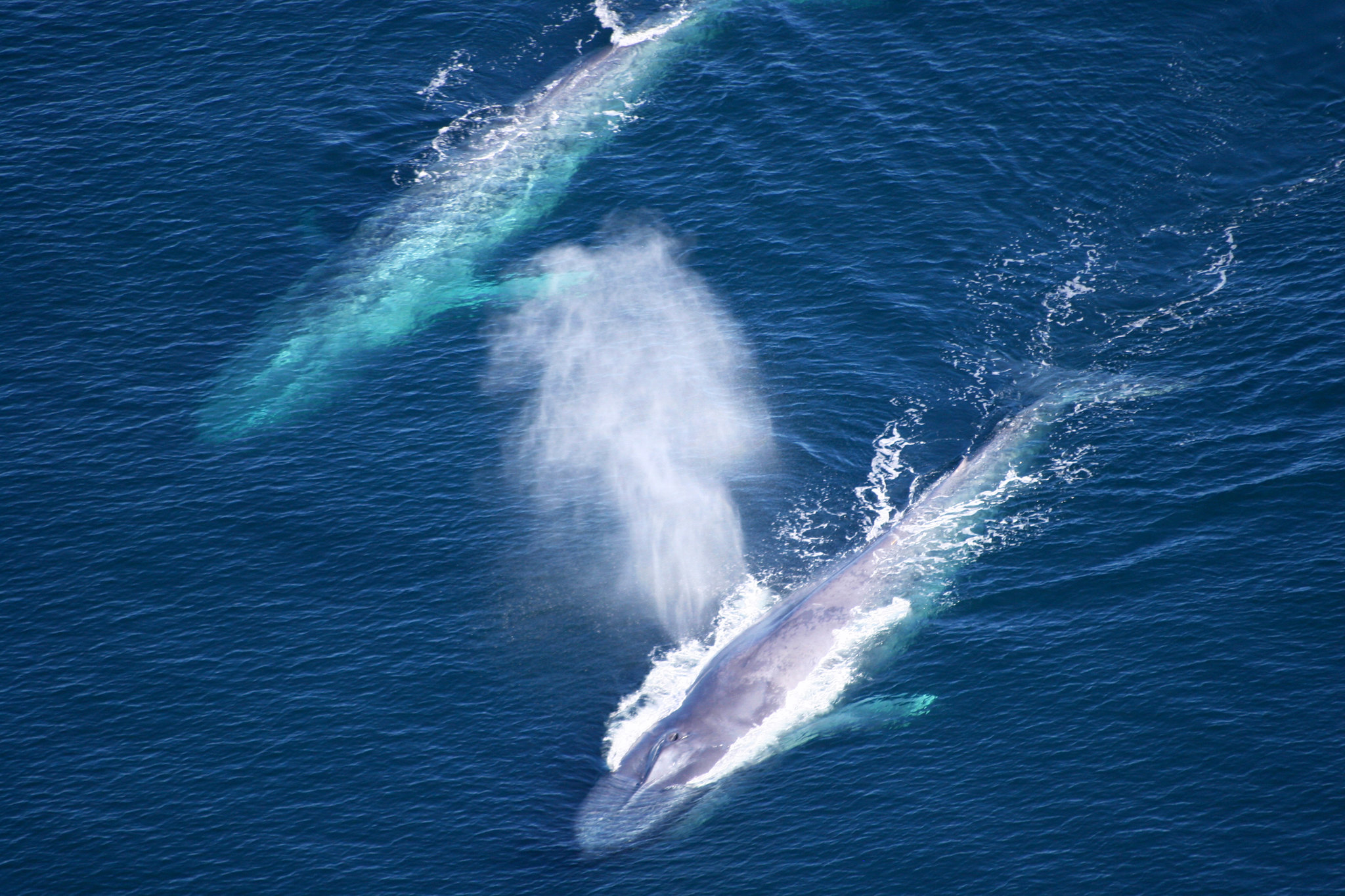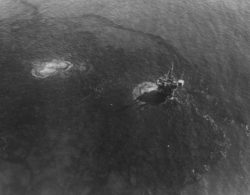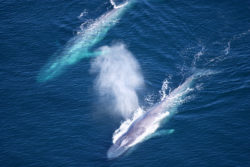
Earth Day and Our Sanctuaries
On January 28, 1969, a blowout on an oil drilling platform six miles off the coast of Santa Barbara, California, spilled an estimated 3 million gallons of crude oil into the ocean. The massive spill shut down commercial fishing, fouled beaches, and killed a great number of dolphins, sea lions, seals, and more than 3,600 seabirds. At the time, the disaster was the largest oil spill in U.S. history. Americans witnessed the oil-coated animals’ suffering on live television and reacted with a new intensity of environmental concern and activism. The event, horrific as it was, marked a turning point in the nation’s conservation history. The activism ignited by the spill helped spur the first Earth Day, celebrated by 20 million Americans across the country. It also built bipartisan support for landmark laws to protect our ocean and Great Lakes. One of those laws was the Marine Protection, Research, and Sanctuaries Act passed in 1972.
The breadth of life in our ocean and Great Lakes is truly astounding. A healthy planet is essential to our health, well-being, and economic livelihood. Nature provides the clean air we breathe, the fresh water we drink, the food we eat, the medicines we take, and the raw materials we use. It mitigates carbon emissions that cause global climate change. Globally, scientists estimate that nature provides services worth $125 trillion per year. The ocean contains a multitude of wonders yet to be discovered, including potentially life-saving cures. The possibilities of new vaccines and medical therapies underscore the importance of conserving biodiversity in these largely unexplored ecosystems.
Safeguarding biodiversity and building a sustainable global economy that protects our blue planet is critical to people’s health and well-being. This year, Capitol Hill Ocean Week will focus on protecting the amazing biodiversity of our ocean and Great Lakes. Throughout the world, we are losing species diversity, with harmful consequences for humans, economies, and the environment. But there are solutions if we work together as stewards of these places. Scientists, managers, and governments are calling for countries to work together to protect nature and to reduce the loss of diversity, slow climate change, and increase our ability to adapt to it.
Our current sanctuaries and monuments are an essential part of this global effort to protect nature. However, there is more we can do. With jurisdiction over almost 4.5 million square miles of ocean – an area 23 percent larger than our nation’s landmass – the U.S. plays a critical role in protecting our global ocean. These waters span ecosystems from the icy cold, gray waters of the Arctic to the warm, tropical blue waters of the Caribbean Sea. By designating new national marine sanctuaries and marine national monuments in areas that represent unique marine and freshwater ecosystems and expanding existing ones with strengthened protections for biodiversity, we can do our part in the global effort to maintain the health of our ocean and Great Lakes.
Today, nearby the site of the Santa Barbara oil spill is Channel Islands National Marine Sanctuary, where massive forests of kelp shelter a diversity of marine life. Private entities, local communities, the state of California, and the Chumash Tribe are working in partnership with the Office of National Marine Sanctuaries to manage this protected area. Their work is local; its impacts are global.
I hope you will join us virtually on June 9, 2020 for Capitol Hill Ocean Week to learn more about how we can all contribute to protecting our ocean and Great Lakes. Your partnership and financial support are critical to solving some of our most pressing issues, both above and below the waves. This Earth Day, please consider making a donation to the National Marine Sanctuary Foundation in honor of our national marine sanctuaries and monuments, and be part of the solutions to come.


